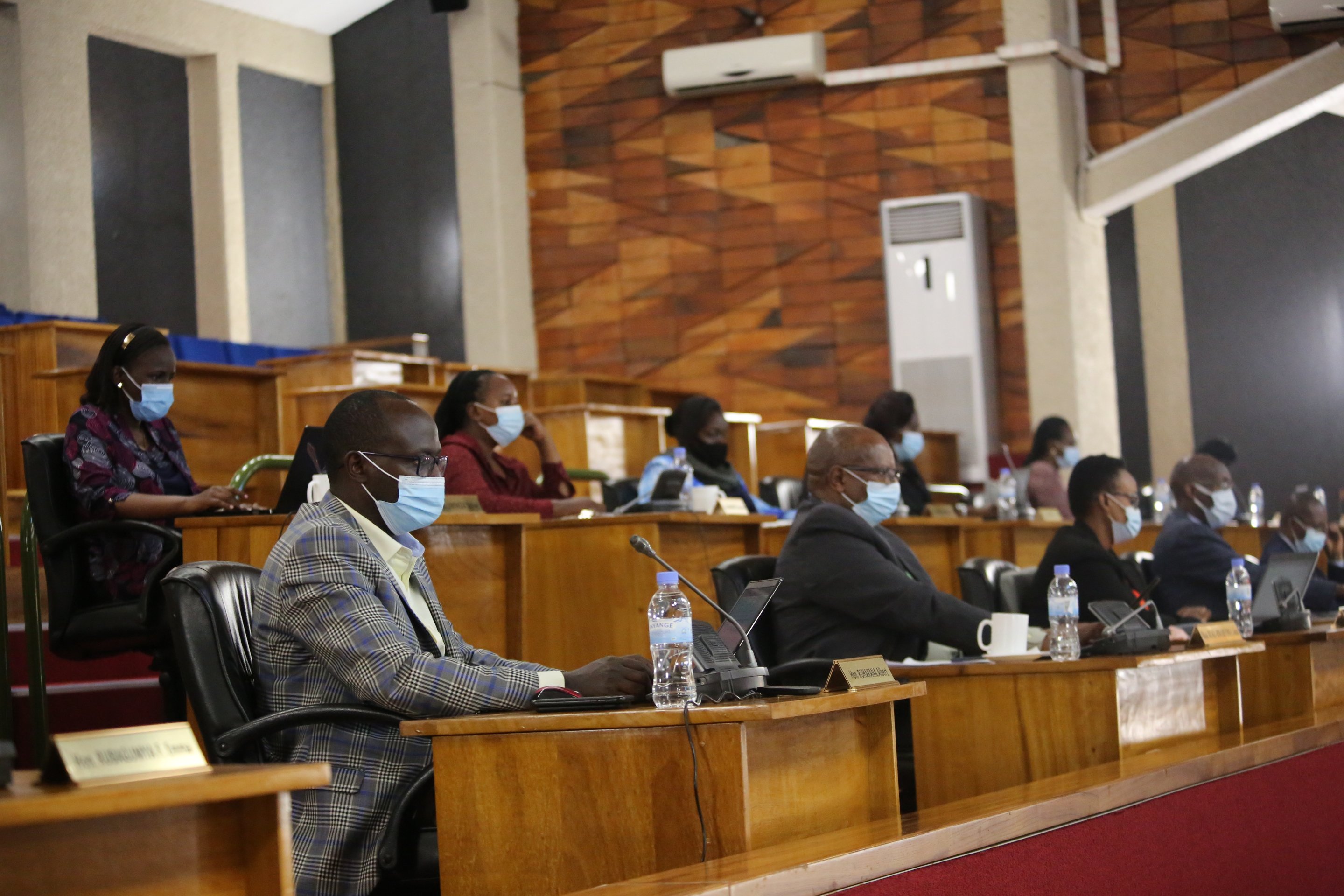

Cooperatives will get a certificate of legal personality giving them absolute powers to work as such entities only if they have achieved their action plans, a new draft law provides.
The law governing cooperative organisations in Rwanda that the Chamber of Deputies passed on Thursday, December 17, 2020 indicates that an assessment will be made to ascertain whether a cooperative has performed well prior to being granted the certificate of legal personality.
During the plenary sitting during which the bill was voted, the Minister of Trade and Industry, Soraya Hakuziyaremye, said that the certificates of legal personality will be done by use of technology which will significantly reduce the time it was taking from the current 35 to two days in the spirit of doing business.
She said that the new development will make sure that the cooperatives have sustainability in their operations, reiterating that "there are cooperatives that are started but later are found to be like ghost cooperatives or inactive."
In July 2020, the Minister told parliamentarians that an assessment that was conducted on 1,505 cooperatives from 2018 until March 2020 revealed that 283 of them were non-operational.
The exercise, she indicated, was done in 12 districts of the country for cooperatives of farmers growing potatoes, coffee, fruit, and vegetables, those rearing silkworm, dairy farmers, as well as bicycle and motorcycle taxi riders.
The minister said that the assessment activity will be extended to other parts of the country, estimating that it might reveal more inactive cooperatives.
"This issue will be solved by the move to grant a provisional certificate that lasts for 12 months, after which the Rwanda Cooperative Agency (RCA) will grant a final certificate," she said.
As there were over 10,900 as of 2019 countrywide, according to data from the Rwanda Cooperative Agency (RCA), an institution in charge of the regulation and development of cooperatives in the country.
Talking about the role of the national organ (RCA) in granting legal personality, the law stipulates that within two working days from the date of the reception of the application, the national organ issues a provisional certificate of registration as proof of provisional registration of the cooperative organisation.
The provisional certificate of registration is valid for a period of 12 months nonrenewable during which it is considered as a legal personality certificate.
After verification whether a cooperative organisation has executed its action plan and on the basis of the inspection report from the District which must be submitted to the national organ at least one month before the expiry of the provisional registration, the national organ issues a certificate of legal personality within two working days from the reception of the report of the District.
RCA has to follow up the implantation of such a process.
Where the national organ does not issue a certificate of legal personality, it informs about the reasons for refusal to the representative of the applicant cooperative organisation within three working days from the date of the reception of the report from the District.
Minister Hakuziyaremye also indicated that the responsibility and ownership of the local authority, as well as strengthening its collaboration with RCA, will help improve the performance of cooperatives, pointing out that the final certificates will be issued by RCA but noted that the local administrative entities will be involved in the process as decentralised institutions.
MP Euthalie Nyirabega said that caution should be exercised to ensure that districts produce and submit their report within the set period so that the cooperative does not be denied the right to the certificate of legal personality.
"The district should produce and submit such a report on time in order to save the interests of the cooperative members," she said.
A cooperative organisation applying for legal personality must define the domain of activity and its objectives; have required number of founder members; define working capital to finance its activities, and have a known physical address.


